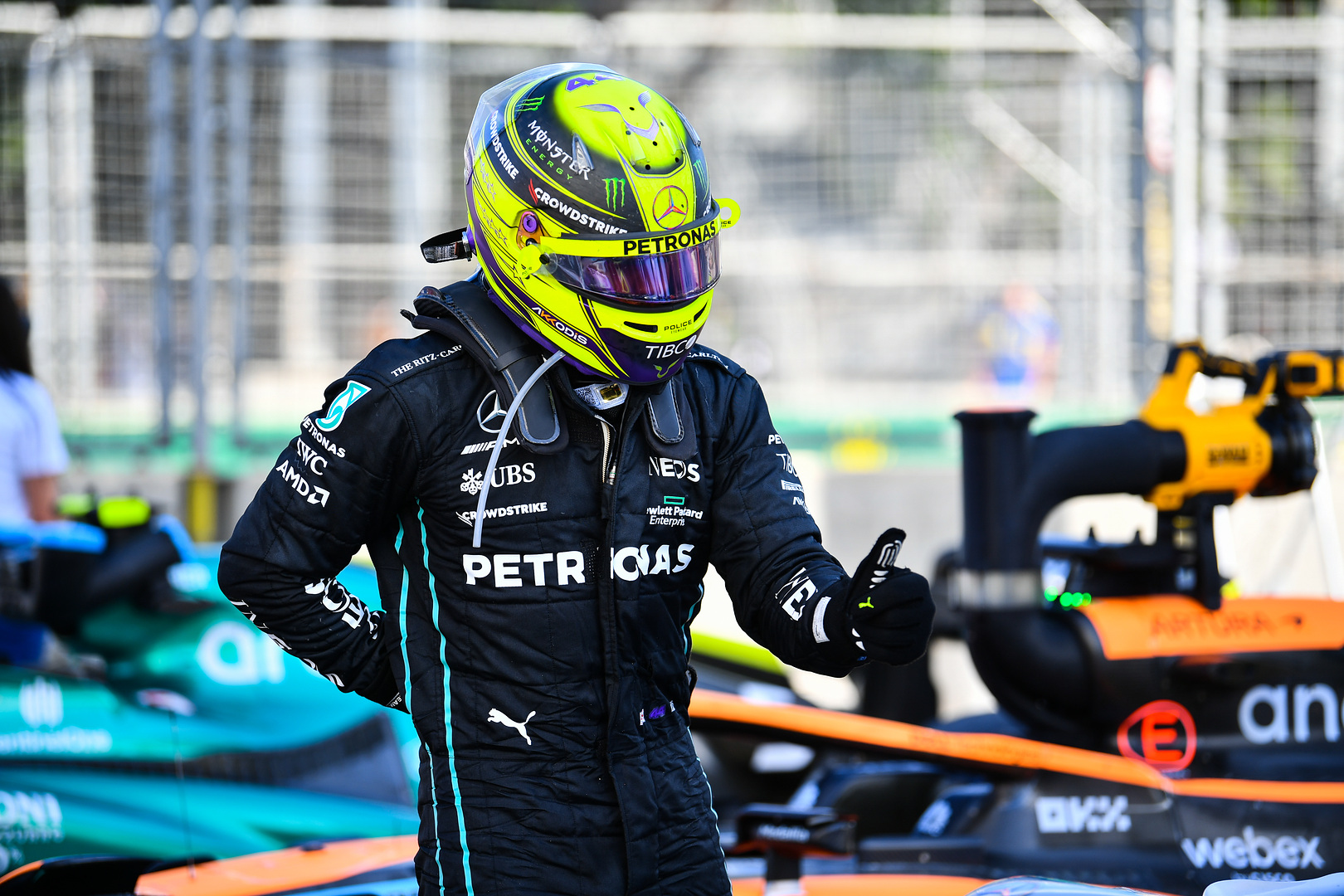Max Verstappen’s Secret Desire: Former F1 Champion Jacques Villeneuve’s Surprising Take
Unveiling the Intriguing Speculation Surrounding Verstappen's Preferred Teammate and F1's Flourishing Era
Surprisingly, former Formula 1 champion Jacques Villeneuve holds the intriguing belief that Max Verstappen, the rising star in the F1 constellation, would prefer none other than Lewis Hamilton as his teammate. This intriguing proposition stems from Villeneuve’s conviction that such a partnership would allow Verstappen to showcase his prowess by triumphing over the seasoned Hamilton. The rivalry between these two F1 legends has burned with intensity over time, marked by numerous collisions on various circuits.
In the annals of F1 history, the year 2021 etched a defining chapter in the Verstappen-Hamilton saga. Their high-octane rivalry peaked as their racing machines repeatedly clashed on iconic tracks like Jeddah, Interlagos, Monza, and Silverstone. However, the season reached its controversial climax in Abu Dhabi, where a contentious conclusion saw Verstappen ascend to the championship throne. The echoes of this intense rivalry linger, resonating with enthusiasts and sparking debates about the sport’s dynamics.
Jacques Villeneuve remains unwavering in his assertion that Max Verstappen, fueled by his competitive fire, secretly aspires to join forces with none other than Lewis Hamilton. The audacious claim, while intriguing, raises questions about the alignment of Red Bull Racing with Verstappen’s aspirations. Villeneuve’s candid dialogue with the press during an interaction with Autosport sheds light on his perspective. He conveyed, “Verstappen’s longing for Hamilton as a teammate is unmistakable, yet it remains uncertain if Red Bull shares this vision.”
“I don’t think [the team] care [who it is]. They have Max.
“So, right now, Max can win like this. They are easily in front, they get all the image they want, why should they care?
“Put a young guy there that wants to show he’s the new world leader and stirs the pot.
“I think Max would probably want Lewis… so he can show the world he can beat Lewis.
“That would be his ultimate goal. So, that’s probably something he would want, but I’m not sure if Red Bull would want that. I don’t know.”
Intriguingly, Villeneuve’s discourse extends beyond the realm of team dynamics. He underscores the necessity of embracing Verstappen’s potential monopoly within Formula 1, emphasizing that resistance against such dominance is unjustified. This narrative gains resonance through Verstappen’s triumphant streak, culminating in his triumph at the recent Dutch Grand Prix—his ninth consecutive victory. Villeneuve notes, “Verstappen’s consistent victory parade exemplifies his mastery over the sport. Criticisms against his reign seem misplaced.”
“It’s not the rules that make him the best. He is the best. People should be happy and proud of that.
“It used to be Lewis and Mercedes [who earned a drivers’ and teams’ title double between 2014 and 2020], and nobody complained.
“So why didn’t people complain about Lewis, but complain now about Max?
“I don’t understand the concept there.”
Villeneuve’s observations weave a tapestry of insight into the current state of Formula 1. He fervently contends that the sport presently flourishes, basking in a golden era that surpasses any prior epoch. Perturbed by the complaints that occasionally echo through the F1 community, he provocatively questions, “Why bemoan the sport’s vitality when it thrives in its prime?” Through these words, Villeneuve challenges conventional perspectives, urging enthusiasts to perceive the sport’s evolution through a different lens.
“It’s Max who is dominating. It’s not Red Bull, We’ve never had F1 so close. If you look first [place] to 12th, sometimes it’s a second, two seconds [gap].
“It’s never been like that in history and people complain. This is the best it’s ever, ever been.”
In his distinctive manner, Villeneuve offers an unconventional viewpoint, one that reimagines F1’s landscape. He rekindles the debate about F1’s regulations and the shadow of Red Bull’s ascendancy. In the end, it’s all about one’s vantage point—a reminder that the F1 narrative remains multi-dimensional and open to diverse interpretations.


